SUMMARY
This is AI generated summarization, which may have errors. For context, always refer to the full article.
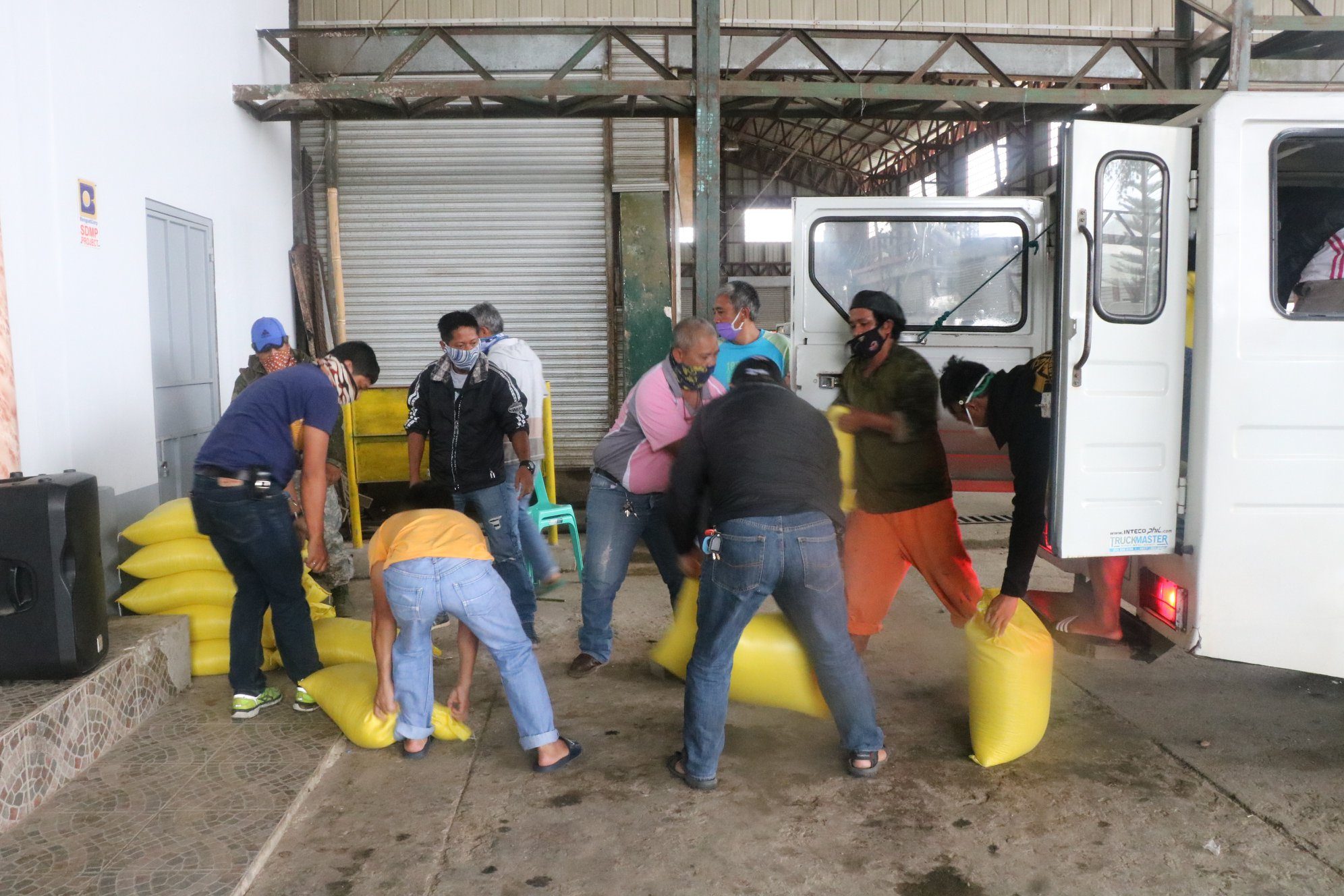
Like many other localities, the municipality of Itogon in Benguet wants to be able to transition to the “new normal” to keep businesses up and workers employed. It is, however, not as easy for this mining town in the northern Philippines.
As of December 8, Itogon is still struggling to draft a budget plan for 2021 – what with its sources of funds scarcer than ever, not just because of the nearly year-long coronavirus pandemic but with the continuing rebuilding that the community has to do after a series of typhoons passed by the area.
Just last November, residents trembled over the news that a string of typhoons would hit the country. It’s been two years since they survived the nightmare of Typhoon Ompong, which in September 2018 caused the crust of a mountain collapse, burying dozens of people. The unearthing of their bodies stretched for days.
As luck would have it, Quinta, Rolly, and Ulysses this time only grazed their town of over 100,000 people.
“We got lucky this time. We were not hit,” the town’s mayor Victorio Pangaldan said in Filipino, speaking to Rappler over the phone.
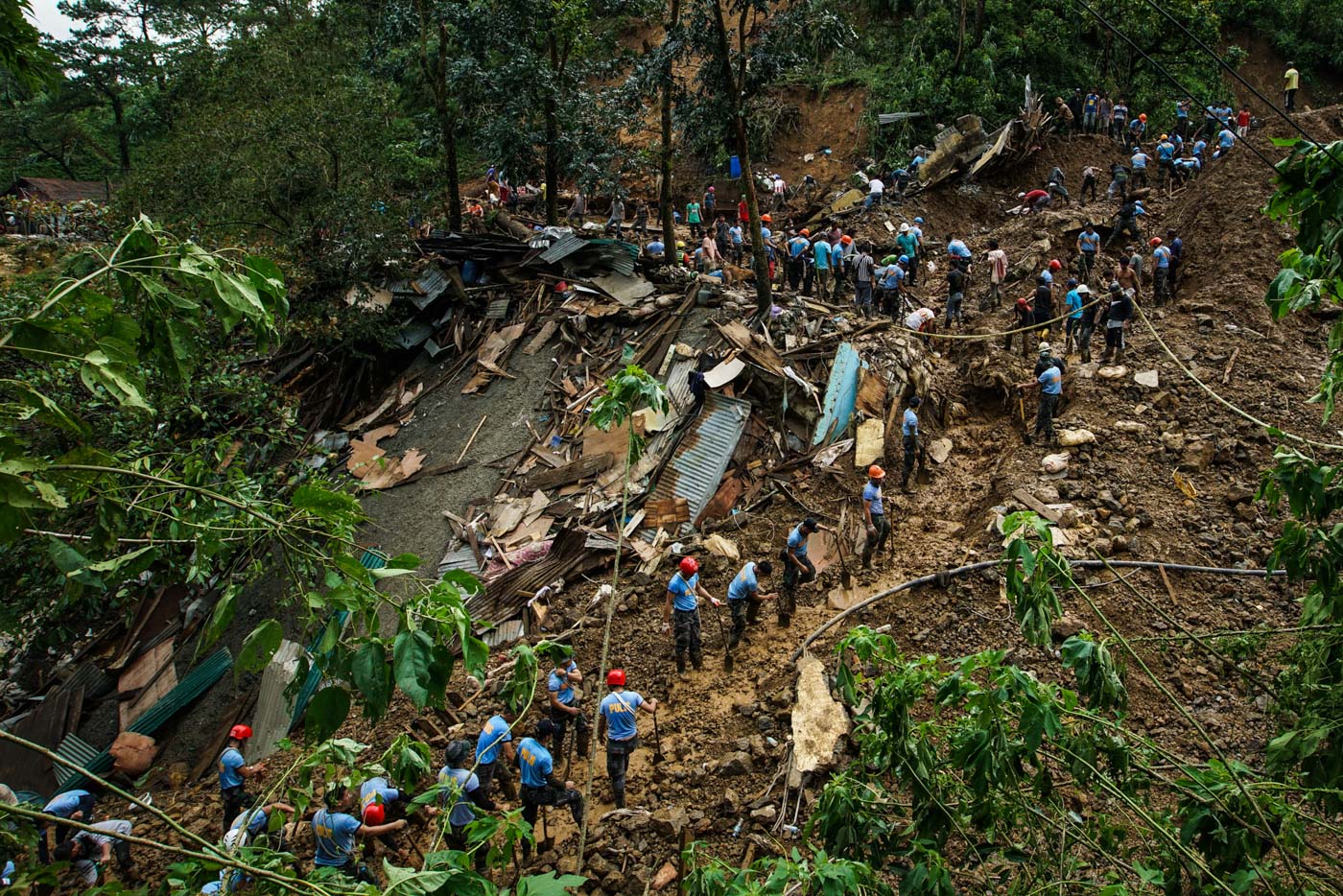
The town may have been spared damage from the weather disturbances, but the other, lingering crisis continues to grip its population. The coronavirus has infected hundreds of its people and crushed little of what was left of its economy. Thousands live in poverty and hunger.
As of December 10, Benguet province has recorded 2,461 coronavirus cases. Of them, around 680 were from Itogon alone.
The mining town in limbo
Samson Eniaca, 36, waits for days at a time with his two brothers before they can work. They live with their parents in one house.
Like most of the other men of Itogon, their hands were trained to dig the earth for ores, but after the ban on small-scale mining, they were left jobless.
Some of their colleagues turned to large-scale mining, but they couldn’t qualify. The mining firms required a high school degree, at least, and have mining tools that they were not familiar with.
Eniaca and his brothers turned to working at construction sites and cleaning other people’s homes. They earned around P200 to P300 a day for 5 days a week. When the pandemic swept the country, they earned nothing for over a month. When lockdowns loosened in May and June, they got two calls at most per week.
“Since the pandemic started, people have been afraid [of exposure]. Only those who knew us called,” he told Rappler in a phone interview.
Samson’s wife, Sofia, 36, had a more stable job. Her school was based in Atok, Benguet – some 56 kilometers of travel away – so she had to bring their one-year-old child with her, while Samson worked to earn for his brothers and parents.
Samson knew that going out to work endangered him, his brothers, and his parents, but he had no other choice. “We need to eat. I also cannot leave them,” he said in Filipino.
When no calls were coming, they rationed the relief goods they received from the local government and skipped lunch.
Eniaca does not know how much longer he could take.
“We’ll make do with whatever help or work that comes along. That’s better than nothing,” he said.
All in for food
P19,188,259
Money from Bayanihan 1 that Itogon spent for rice, which lasted a month
Grace Pocsol, the chief of the Municipal Social Welfare and Development Office, has to make every peso count in helping Itogonons.
When the local government received the Bayanihan 1 fund from the national government, they immediately knew where to spend it on: food. They received P19.19 million, all of which went to purchasing rice, and the supply lasted for only a month.
“We were able to provide to the locked down areas, but we had hoped to save some for future lockdowns,” Pocsol told Rappler in a phone interview.
Pocsol also worried about how families could sustain themselves as the pandemic continued. Her office reached out to the Technical Education and Skills Development Authority (Tesda) to train their residents on crafting and sewing, but then came the next problem: “The families didn’t have capital” if they wanted to start a business.
Pocsol said the local government used to have funds to hand out thousands of pesos for residents to start their small businesses, but the money had been spent on aid for the training already.
As much as the local government wanted to spend more on virus recovery and social aid, it also had to continue its recovery projects from Ompong. Roads and anti-flooding structures were still being built.
The training also did not reach all those who needed it. When asked whether he had been invited to a TESDA training, miner Samson Eniaca said he and his brothers had not heard of any program to train them.
Pocsol and her office have requested for more help from the Department of Social Welfare and Development in Manila, but the agency itself has also been stretched out by the many starving families in different regions.
She worried that help might not come soon enough for the town, especially as the pandemic is approaching its second year.
“When you have a limited budget, you’re really paralyzed,” Pocsol lamented.
Mayor fears for his people
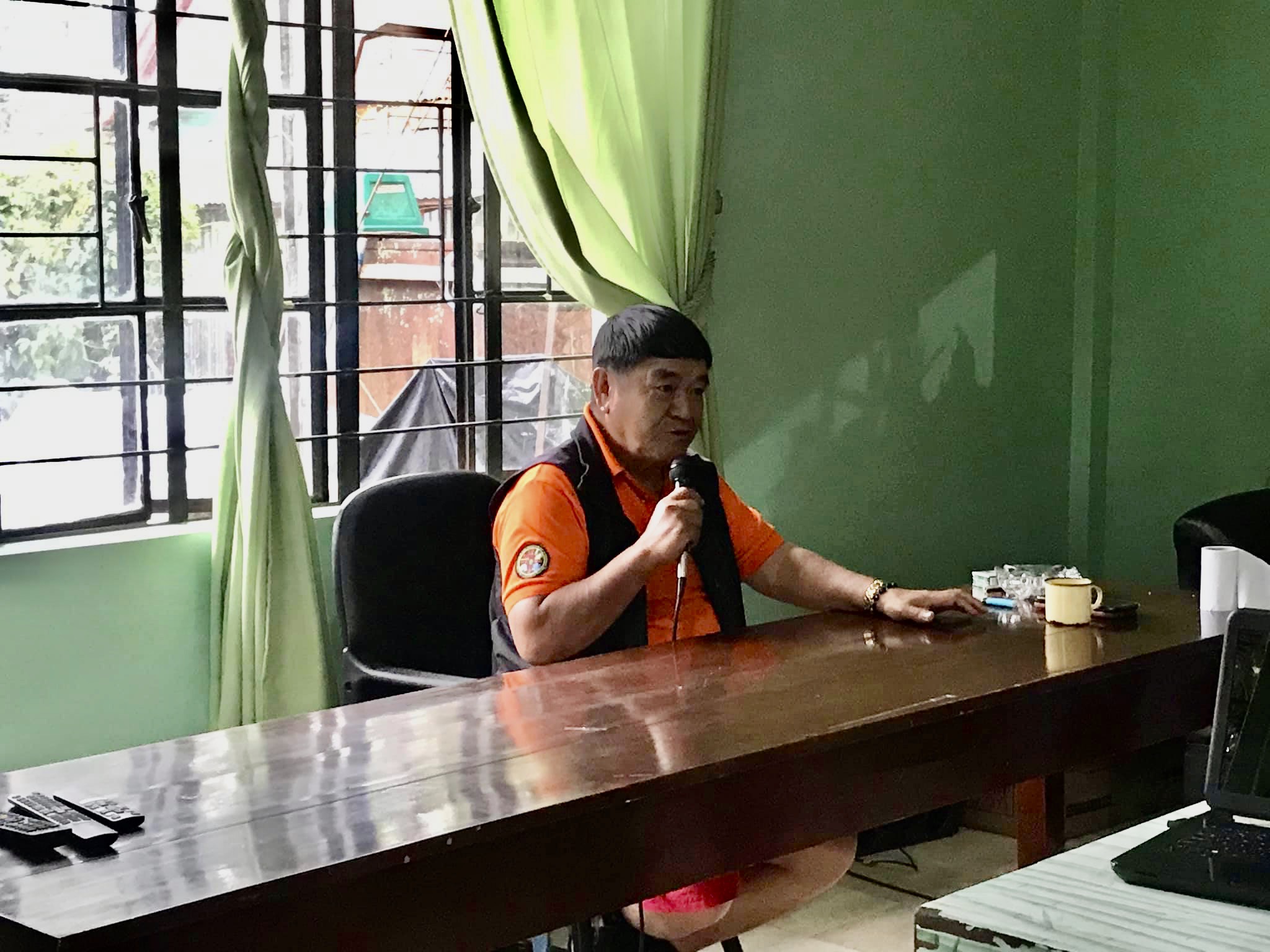
At the municipal hall, Mayor Victorio Pangaldan had the same thought: How much longer can the people of Itogon take?
“We are short of everything,” Pangaldan said.
Itogon, classified by the finance department as a first class municipality, isn’t only lacking in money to bankroll big and regular aid packs for its residents, it doesn’t have funds to sustain a testing center. Its residents have been getting their coronavirus tests done in Baguio City.
Once, its local government decided to use confiscated gin as road disinfectant.
The strategy of the local government has been to implement “granular lockdowns” in areas affected by the virus, but the source of livelihood of its locals still could not move forward because of the virus scare.
“There is almost no livelihood,” Pangaldan said.
The flowers they used to produce and ship to the Dangwa Flower Market in Manila were not selling because events and celebrations had been banned during the pandemic.
The town tried to survive through tourism with mountain climbing tours, but even tourism was dead. Mountain-side resorts that employed hundreds were forced to close down.
Large-scale mining, the only form of mining permitted so far, faced a setback after its miners contracted the virus and spread it inside their bunkhouses.
Pangaldan estimates that 2 in every 3 workers lost their jobs during the pandemic.
With limited funds and a virus scare that threatens to be stay as the new year approaches, Pangaldan acknowledges that Itogon may have a hard time transitioning to the “new normal.”
His people have been hardened by storms, but he is not certain the town can take a contagion.
“Kung ganito, maghihirap ang mga tao,” the mayor said, “‘yun ang problema ngayong pandemic – na hindi na makakaya.” (If this continues, the people will suffer. This is the problem in this pandemic – that they may not be able to bear it any longer.) – Rappler.com
Add a comment
How does this make you feel?
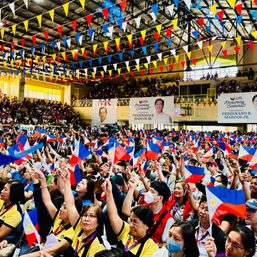
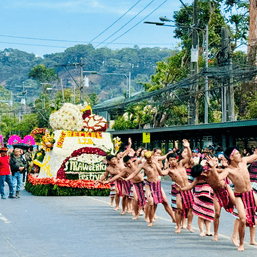
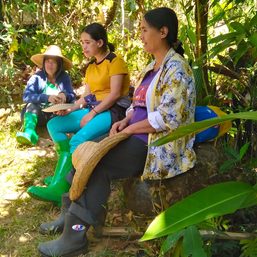




![[Time Trowel] Evolution and the sneakiness of COVID](https://www.rappler.com/tachyon/2024/02/tl-evolution-covid.jpg?resize=257%2C257&crop=455px%2C0px%2C1080px%2C1080px)





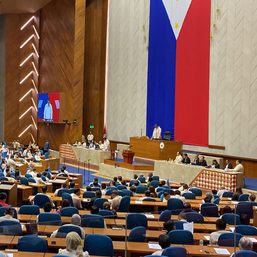

There are no comments yet. Add your comment to start the conversation.